Retro Replay Review
Gameplay
The Magic School Bus Explores the Ocean offers a rich blend of exploration and educational minigames that keep young players engaged throughout the adventure. From the moment you climb aboard the submarine bus, you’re presented with a choice of oceanic zones—Coral Reef, Open Ocean, Deep Ocean, Hot Vents, Kelp Forest, and more—each teeming with clickable items that unlock activities, experiments, and informative reports. This free-roaming structure encourages curiosity and lets children chart their own paths, revisiting zones as often as they like to uncover every clue.
(HEY YOU!! We hope you enjoy! We try not to run ads. So basically, this is a very expensive hobby running this site. Please consider joining us for updates, forums, and more. Network w/ us to make some cash or friends while retro gaming, and you can win some free retro games for posting. Okay, carry on 👍)
Interspersed with the exploration are themed minigames that reinforce scientific concepts in a playful manner. In “Crab Chase,” for example, you guide a crab across the beach, collecting food while evading a hungry seagull. “Ride the Tide” challenges you to navigate a fish through shifting currents, using the arrow keys for movement and the space bar for jumps. These diversions are short, colorful, and perfectly pitched for ages 6–10, providing quick bursts of action that break up the more deliberate pace of research and clue gathering.
Controls are intuitive for young audiences: inside the bus, clicking the steering wheel and gearshift sets your destination; outside, you scroll between screens via arrow icons or a distinctive submarine cursor. This two-mode interaction helps reinforce cause-and-effect thinking—children quickly learn that experimenting with different buttons and icons leads to new discoveries. The freedom to tackle zones in any order also adds replay value, as players can revisit areas to perfect their minigame scores or reexamine exhibits for missed information.
Collecting three clues to unlock the sunken treasure provides a clear, motivating goal. Once these are in hand, the treasure scanner mini-puzzle delivers a satisfying conclusion to the journey. The blend of open exploration, focused minigames, and puzzle resolution ensures that each session feels purposeful, balancing hands-on fun with structured learning objectives.
Graphics
The game’s visuals faithfully capture the vibrant, cartoonish style of Joanna Cole and Bruce Degen’s original books. Bright colors and bold outlines bring each underwater zone to life, from the kaleidoscopic coral gardens to the eerie glow of deep-sea vents. Character sprites for Ms. Frizzle and her students are charmingly animated, occasionally popping into view with enthusiastic wave or excited exclamation bubbles.
Environmental details are both decorative and informative: clicking a starfish reveals facts about echinoderms, while a glowing tube worm opens an explanation of chemosynthesis. This integration of art and education enhances immersion, as players learn organically through interactive hotspots rather than static text dumps. Background animations—schools of fish drifting by, bubbles rising from vents, and swaying kelp fronds—add dynamism without distracting from gameplay.
Minigames maintain the same visual consistency, each sporting its own thematic color palette and character designs. The Crab Chase features sandy shores with realistic footprints, while the Lantern Fish Game conveys the mysterious appeal of bioluminescence through darkened backgrounds illuminated by tiny glowing dots. Although the resolution and texture detail reflect the era of its release, the stylistic choice remains timeless and well-suited to its target audience.
Load times between screens are brief, and transitions are smooth, ensuring that young players stay focused on content rather than waiting. Overall, the graphics strike an ideal balance between educational clarity and playful artistry, making the ocean’s wonders accessible and inviting.
Story
Scholastic’s The Magic School Bus Explores the Ocean weaves an inspiring narrative around Ms. Frizzle’s legendary thirst for knowledge. Tasked with a quest to uncover three mysterious clues leading to a sunken treasure, the story frames each educational activity as a critical step toward the final goal. This simple yet compelling premise motivates players to learn about marine life and oceanography in order to succeed.
Although the storyline is straightforward, character interactions inject personality and humor. Ms. Frizzle pops up with her trademark enthusiasm, offering hints and fun facts, while classmates contribute lighthearted commentary that makes the journey feel like a group adventure. These moments of dialogue, combined with occasional animated cutscenes, help sustain narrative momentum between activities and minigames.
The decision to set the plot around treasure hunting rather than pure fact-finding is a clever storytelling device. It lends a sense of mystery and urgency—every report completed and every puzzle solved feels like a step closer to discovery. This narrative structure also ensures that the educational content never feels tacked on; instead, it becomes the key to unlocking the game’s final secret.
For children who may lose focus during longer learning sessions, the promise of uncovering hidden treasure acts as an ever-present incentive. The reveal at the game’s conclusion is both rewarding and educational, summarizing key takeaways about ocean zones and marine ecosystems before rolling the credits.
Overall Experience
The Magic School Bus Explores the Ocean delivers an outstanding blend of learning and play that will appeal to both children and educators. Its open-ended exploration fosters scientific curiosity, while the mini-games offer targeted practice in marine biology concepts. Parents and teachers can confidently recommend it, knowing it aligns with curriculum goals for ages 6–10 without sacrificing entertainment value.
Replayability is strong thanks to the nonlinear zone selection and the variety of interactive experiments dotting each screen. Players eager to perfect every minigame score or collect all possible reports will find ample reason to revisit familiar areas. Moreover, the game’s pacing is well balanced—no single activity overstays its welcome, ensuring consistent engagement throughout.
While modern titles may boast higher-fidelity graphics or online features, Scholastic’s classic educational design remains highly effective. The straightforward interface eliminates frustration and puts young learners in control, and the seamless integration of facts into gameplay means that knowledge acquisition feels like discovery rather than rote memorization.
In short, The Magic School Bus Explores the Ocean stands as a model for how educational games can be both fun and informative. Its blend of narrative drive, interactive learning, and colorful presentation makes it a must-have for families and classrooms seeking an educational adventure beneath the waves.
 Retro Replay Retro Replay gaming reviews, news, emulation, geek stuff and more!
Retro Replay Retro Replay gaming reviews, news, emulation, geek stuff and more!
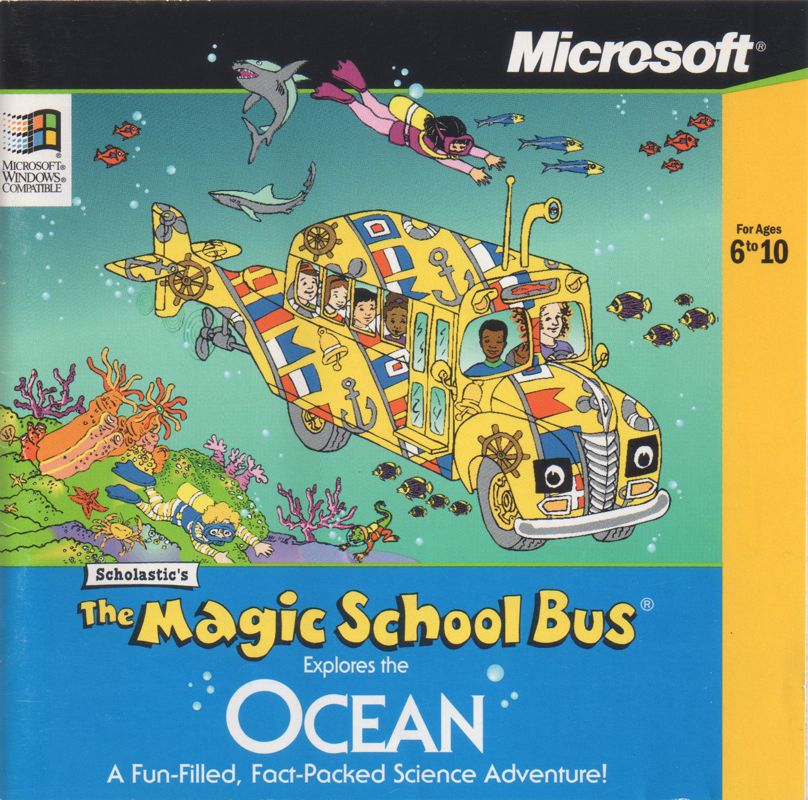
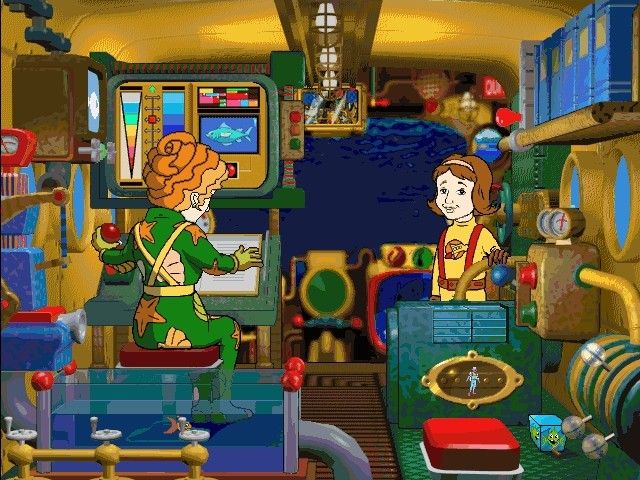
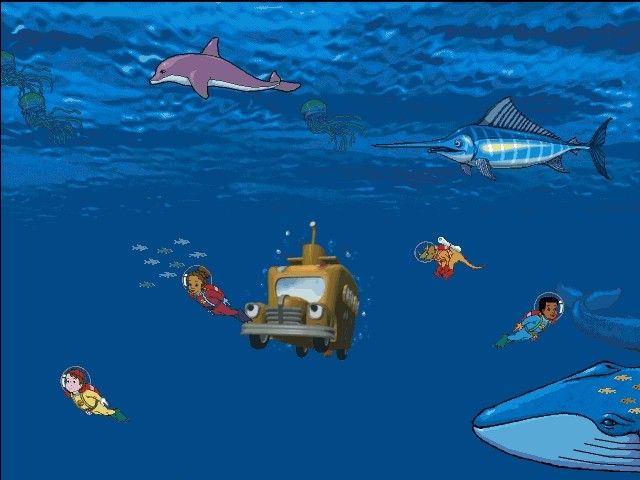
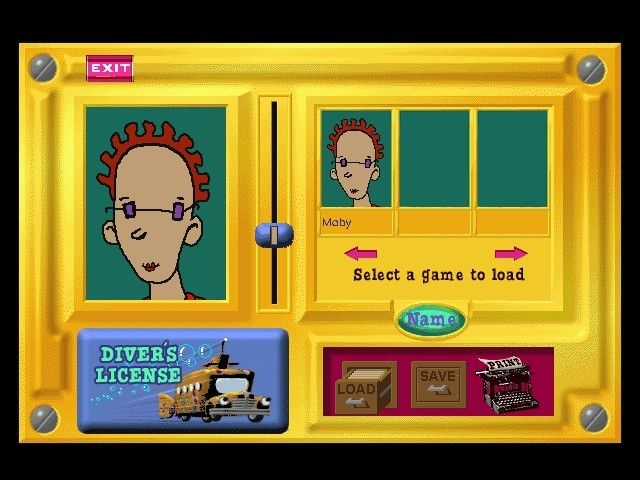
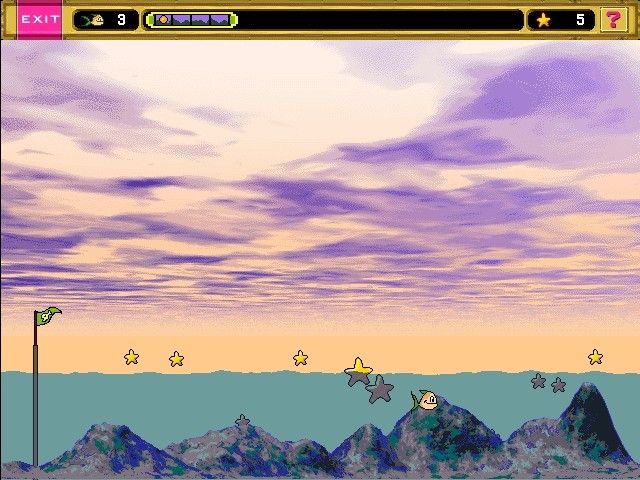
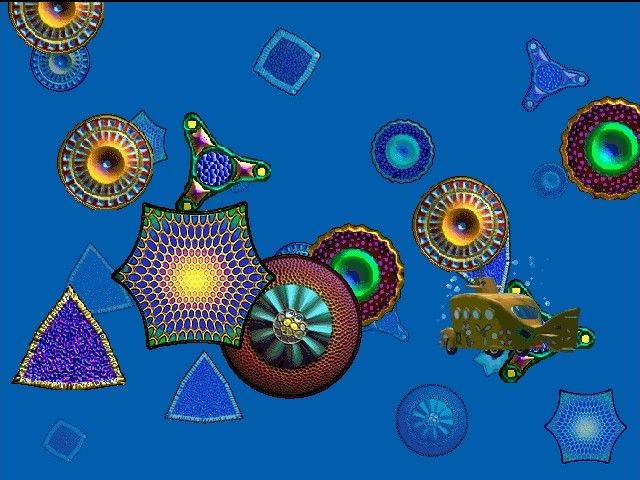



Reviews
There are no reviews yet.